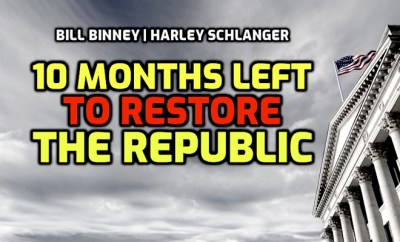 myfuntime.wikia.com
myfuntime.wikia.com
Police State
If You Want the NSA Passing Around Your Nude Pics, You’ll LOVE the Treaties Being Secretly Negotiated Without Your Consent
TPP may as well stand for “Tracking Porn Pics.”
TiSA should really be called “Titillations in Spy Agencies.”
And TTIP might as well be re-labeled “Trading Topless Internet Photos.”
Why?
Because the NSA is already passing around your dick pics.
And as Motherboard explained last year, the monstrous treaties known as TPP, TiSA and TTIP being forced on much of the world by the powers-that-be would just make the problem worse:
With paranoia over NSA surveillance reaching a fever pitch, foreign governments are making a reasonable plea: bring our data home.
But the Americans are doing their best to ensure that the world’s Internet data stays on U.S. soil, well within the reach of their spies.
To do so, American negotiators are leveraging trade deals with much of the developed world, inserting language to ensure “cross-border data flows”—a euphemism that actually means they want to inhibit foreign governments from keeping data hosted domestically.
The trade deals they’re influencing—the Trans-Atlantic Partnership (TPP), the Trade in Services Agreement (TiSA), and the Transatlantic Trade and Investment Partnership (TTIP)—are all so secretive that nobody but the governments themselves are privy to the details.
But thanks to the Australians and Wikileaks, both of whom have leaked details on TPP, we have a pretty good idea of what’s going on in the latest Trans-Pacific Partnership ….
America is, essentially, the world’s data server. Since the dawn of the internet itself, every database of import has been hosted in the grand US of A. But now, foreign governments are starting to see the benefit of patriating their citizens’ private information. [Background here and here.]
Canada was an early adopter of the idea. Federal procurement regulations often require government departments to insert local data requirements, stating that businesses who wish to administer or host Canadians’ information must keep the information within Canadian borders. Most recently, the Canadian Government put out a tender for a company to merge and host the email servers for all their departments. In doing so, they stuck in a national security exemption, forbidding foreign contractors from applying.
Nova Scotia and British Columbia went a step further, flatly requiring any government-hosted personal data to be physically located in Canada.
Australia has taken similar steps, including setting up firm requirements for how companies store offshore data.
But the American government is not having any of it and is using TPP negotiations to strong-arm new provisions that favour American hosted data.
***
“We know there is an e-commerce chapter and the general understanding is that the U.S. is pressing for a provision that would bar the ability to require localization of data,” says University of Ottawa professor Michael Geist, who is also the Canada Research Chair in Internet and E-commerce Law. “That has big implications.”
***
What makes the TPP agreement so extreme is that it could allow those corporations to sue governments that don’t respect the data flow provisions. For example, an American cloud server company could sue Canada for slipping in a “Canadians only” provision on the contract tender to merge its email servers.
***
Even if it is eventually removed from the TPP agreement, talk is also swirling that the language is included in the TTIP—which is basically the Atlantic equivalent of the Pacific deal, tying in America and much of Europe. It, too, is secretly being negotiated.
For TiSA, there’s no doubt that the data flow provisions have been stuck in. We only know this, again, because of Wikileaks.
“No Party shall take measures that prevent transfers of information or the processing of financial information, including transfers of data by electronic means, into and out of its territory,” reads language in the agreement, which only affects certain financial transactions.
Ultimately, keeping data within reach of the NSA puts it under the jurisdiction of the secretive United States Foreign Intelligence Surveillance Courts—spoken in hushed tones among privacy activists as the all-powerful FISA courts that hand over blank cheques to the American spies for warrants and the like.
“It means that the NSA has a more direct line and fewer restrictions,” says Tamir Israel, lawyer at the Canadian Internet Policy & Public Interest Clinic.
***
the sort of data that could be captured by both domestic surveillance programs and the NSA’s “bulk trolling,” as Robinson puts it, is limited only by your paranoia.Police reports, emails, phone calls, health records, tax information, credit card details, and much more. Admittedly, some of this data is already susceptible, considering that America does host much of the world’s private data already.
***
The NSA might be a big winner from these changes ….
The American government already considers anyone who wishes to protect their privacy to be“extremists” or perhaps even “terrorists”.
TPP, TTIP and TiSA would make it harder to keep any of your information – including your nude pics – private.
Read More @ Washington’s Blog.com

















